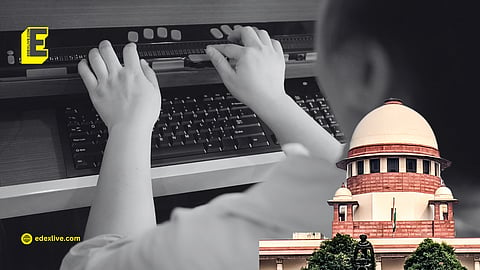

A group of visually impaired law students and graduates have approached the Supreme Court, alleging systemic discrimination and non-compliance with the Rights of Persons with Disabilities (RPwD) Act in legal examinations like the All India Bar Examination (AIBE) and the Common Law Admission Test (CLAT).
As per updates by Bar and Bench, a Bench of Justices Surya Kant and Ujjal Bhuyan issued notice to the Central government on the plea and listed the matter for hearing on November 25.
The petitioners, all individuals with significant visual impairments, have raised concerns about ongoing barriers to accessing essential accommodations during these exams. Despite repeated attempts to engage with the Bar Council of India (BCI) and the authorities overseeing CLAT, their efforts have been met with a lack of response or support.
Specific grievances
One petitioner, a law graduate from NALSAR University with 90% low vision, sought permission to use a computer during the AIBE-XIX examination. Despite numerous emails and letters to the BCI, he received no acknowledgement or assistance. This petitioner is notable for having established an Accessibility Lab for visually and hearing-impaired individuals.
Another petitioner, a blind law student from Government Law College, Mumbai, sought clarification on scribe eligibility criteria and permission to use a computer during the CLAT. His requests were also ignored.
The third petitioner, a blind law graduate from Auro University in Surat, requested soft copies of Bare Acts and permission to use a computer for the AIBE-XIX. After an oral refusal from the BCI's helpdesk, he received no written communication addressing his concerns.
Concerns
The petitioners argue that the denial of accommodations, such as access to computers and digital copies of Bare Acts during exams, constitutes a violation of both the RPwD Act and the Government of India's guidelines for conducting examinations for persons with benchmark disabilities, issued on August 29, 2018.
These systemic issues, the petitioners argue, prevent them from competing on an equal footing with other candidates, added Bar and Bench.
The petitioners have asked the court to direct the authorities to implement necessary accommodations and comply with legal provisions.
